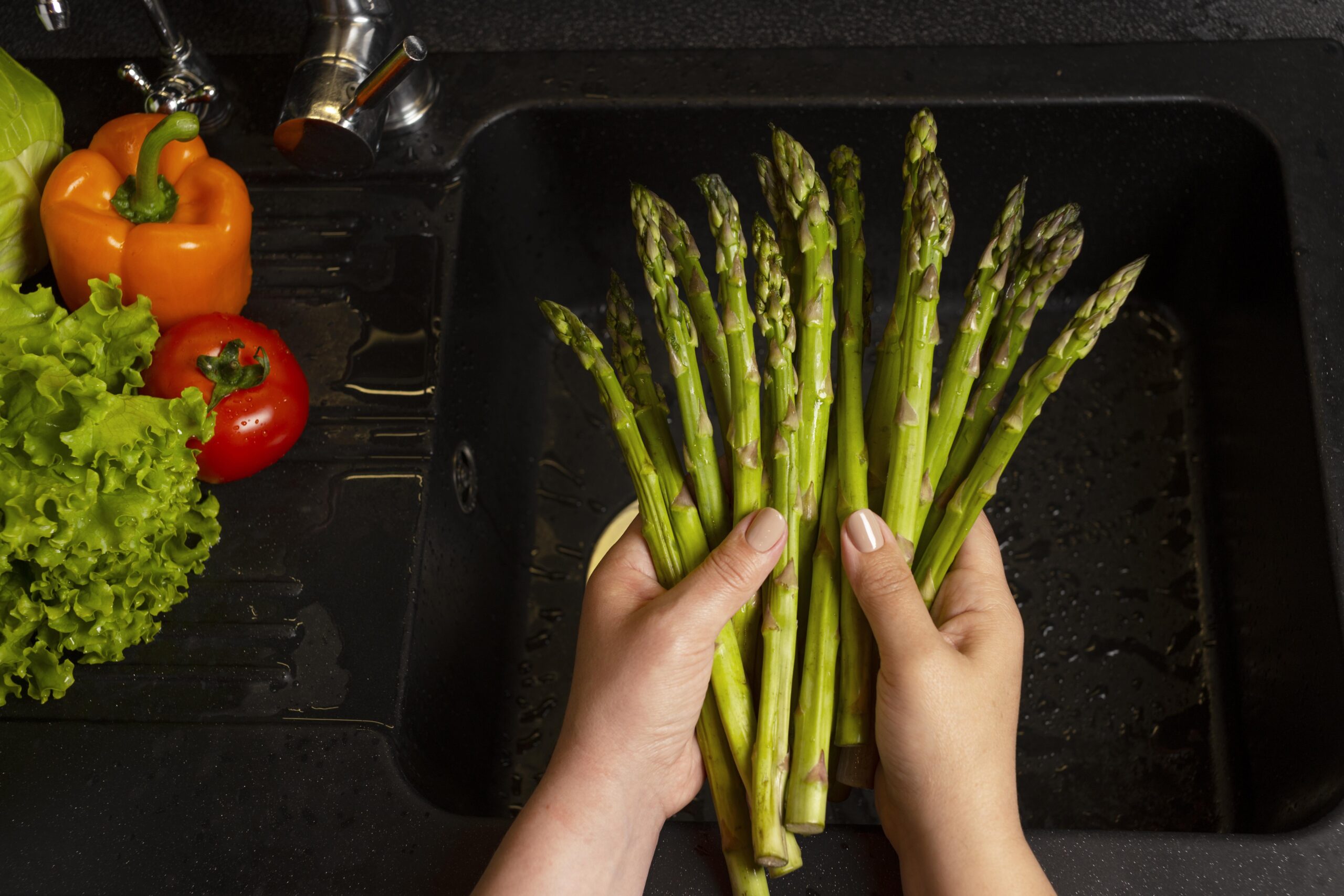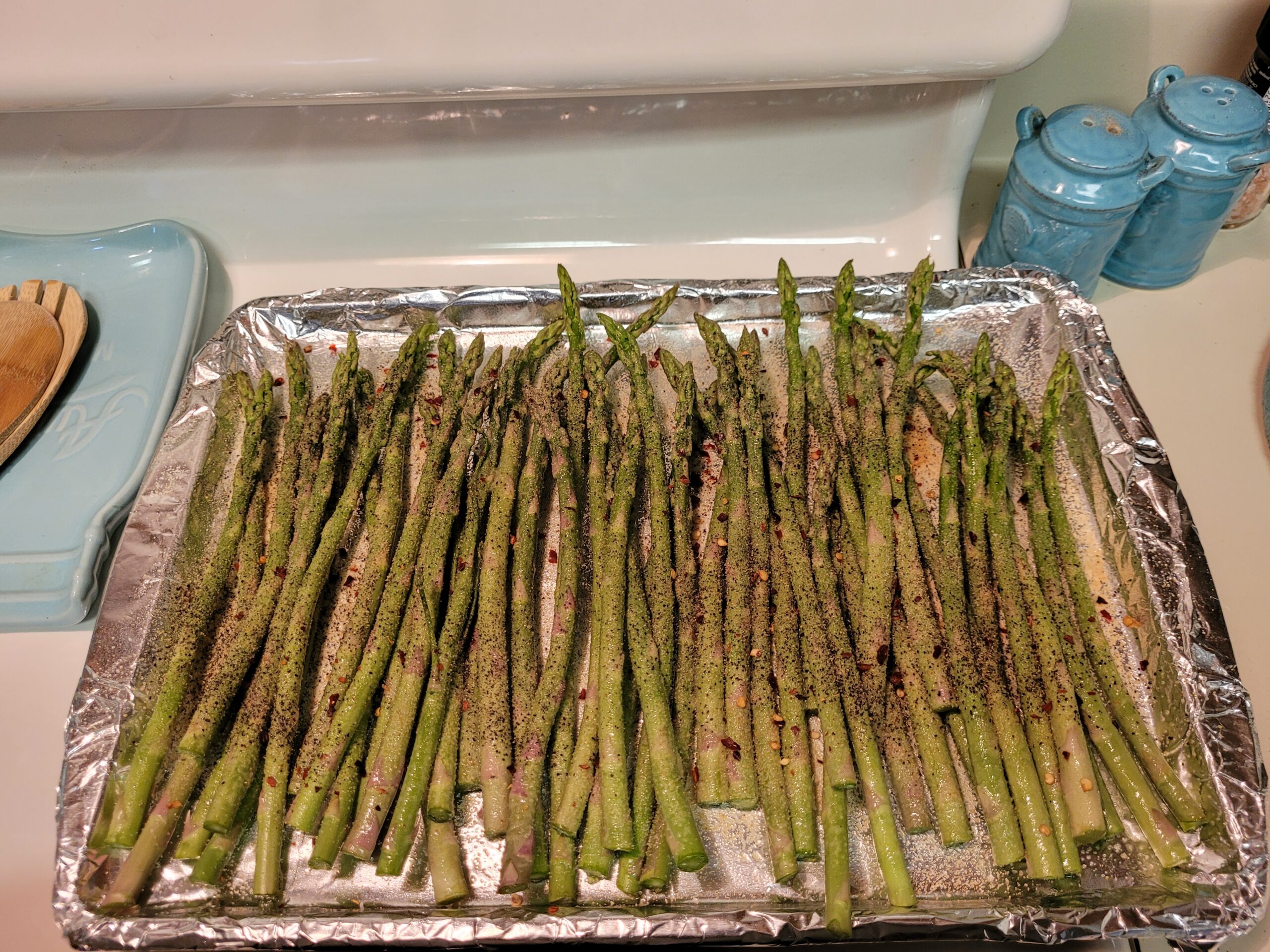- SHOPPING
26 Best Bra For Plus Size Women


Roasting asparagus in the oven is a straightforward method that elevates this humble vegetable into a delicious, flavorful side dish. With just a few simple ingredients and steps, you can transform asparagus into a tender, crispy delight that complements any meal. Whether you’re a seasoned cook or a kitchen novice, oven-roasted asparagus is a budget-friendly recipe that offers both taste and simplicity. Let’s dive into the essentials to perfect this dish in your home kitchen.
Roasting asparagus brings out a depth of flavor that other cooking methods might not achieve. The high heat of the oven caramelizes the natural sugars in the asparagus, resulting in a slightly sweet and nutty taste. This method also preserves the nutritional value of asparagus, which is rich in vitamins A, C, and K, as well as folate and fiber. Roasting is a healthy cooking technique that requires minimal oil, making it an excellent choice for those watching their calorie intake.
The beauty of roasting asparagus lies in its simplicity. Here are the essential ingredients you’ll need to create a classic oven-roasted asparagus dish:
These basic ingredients allow the natural flavor of the asparagus to shine while providing a hint of richness and seasoning.
Preparing oven-roasted asparagus is a quick process that requires minimal preparation. Follow these steps to achieve perfectly roasted asparagus every time:
Begin by preheating your oven to 400°F (200°C). This temperature is ideal for roasting asparagus, ensuring it cooks evenly and develops a crisp texture.
Rinse the asparagus spears under cold water and pat them dry with a clean kitchen towel. Trim the woody ends of the asparagus by snapping or cutting them off—about 1 to 2 inches from the bottom.
Place the asparagus on a baking sheet in a single layer. Drizzle with olive oil and sprinkle with salt and pepper. Toss the asparagus gently to ensure even coating. If using, add minced garlic for an extra layer of flavor.
Place the baking sheet in the preheated oven and roast the asparagus for 12 to 15 minutes. Halfway through, shake the pan or use tongs to turn the spears for even cooking. The asparagus should be tender and lightly browned on the edges.
Enhance the flavor profile of your roasted asparagus with these tasty variations:
Add the zest of one lemon and a quarter cup of grated Parmesan cheese to the asparagus before roasting. The citrusy zest and savory cheese create a delightful contrast to the earthy asparagus.
Drizzle a tablespoon of balsamic reduction over the roasted asparagus for a tangy and sweet finish. This variation pairs well with grilled meats or as a salad topping.
For a bit of heat, sprinkle half a teaspoon of red chili flakes over the asparagus before roasting. This simple addition adds a spicy kick to the dish, perfect for those who enjoy a bit of spice.
Mix in a teaspoon of dried herbs such as thyme, rosemary, or oregano with the olive oil before coating the asparagus. These herbs infuse the asparagus with aromatic flavors that complement its natural taste.
Cooking on a budget doesn’t mean sacrificing flavor. Here are some pantry swaps to consider:
If you’re out of olive oil, substitute with vegetable or canola oil. Both oils have a neutral flavor and high smoke point, making them suitable for roasting.
No fresh garlic? Use garlic powder instead. Similarly, if you’re short on Parmesan, nutritional yeast provides a cheesy flavor without dairy.
If you don’t have balsamic reduction, a splash of apple cider vinegar or lemon juice can provide the acidity needed to brighten the dish.
Achieving the perfect texture and flavor requires attention to a few key details:
Select asparagus spears that are firm and vibrant green. Avoid limp or discolored spears, as they may not roast well.
Ensure the asparagus spears are similar in size for even cooking. Trim larger spears if necessary to match the size of smaller ones.
Arrange the asparagus in a single layer on the baking sheet. Overcrowding can lead to steaming instead of roasting, resulting in soggy spears.
Oven-roasted asparagus is versatile and pairs well with various main dishes. Consider these serving ideas:
Serve alongside grilled chicken or steak for a balanced meal. Add to a grain bowl with quinoa, roasted vegetables, and a drizzle of tahini. Top a salad with roasted asparagus spears for added texture and flavor. Incorporate into a pasta dish with garlic, olive oil, and cherry tomatoes for a light, spring-inspired meal.

If you have leftovers, store them properly to maintain their flavor and texture:
Place leftover asparagus in an airtight container and refrigerate for up to three days. Ensure the asparagus is completely cooled before sealing the container to prevent moisture buildup.
To reheat, place the asparagus in a preheated oven at 350°F (175°C) for about 5 minutes, or until warmed through. Alternatively, use a microwave for a quick reheat, though this may result in a softer texture.
With these tips and techniques, you’ll be able to create delicious, budget-friendly oven-roasted asparagus that delights your taste buds and complements any meal. Happy cooking!